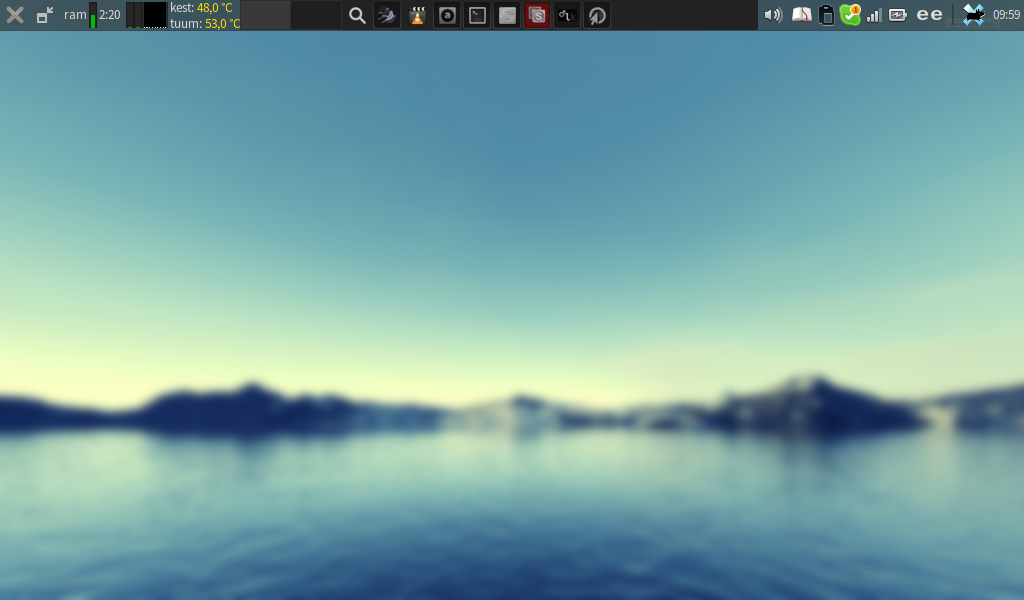It turns out that Manjaro’s awesome edition is awesome. How have I missed it for so long?
Continue reading “Still looking for the perfect desktop: awesome window manager”
Bspwm by Arcolinux: Still looking for the perfect desktop
Thanks go to Arcolinux for creating an edition of the Bspwm window manager that I was able to approach, after two years of trying other editions of Bspwm to no avail.
Continue reading “Bspwm by Arcolinux: Still looking for the perfect desktop”
Trackball config: Kensington Expert Mouse
If you still use a desktop computer for getting most work done, then you also care about hardware peripherals like mouse and keyboard. But some people, such as myself, grow out of mouse and need a trackball.
Continue reading “Trackball config: Kensington Expert Mouse”
w3m and touchscreen
Termux emulates a Linux terminal on Android. After installing Termux on your smartphone, run packages install coreutils to launch the Linux terminal experience. It does not require rooting.
Continue reading “w3m and touchscreen”
Still looking for the perfect desktop: Focus
As much as I love i3 window manager, I am getting more frustrated as I get to know it better. The issues with window focus are piling up.
Continue reading “Still looking for the perfect desktop: Focus”
Qtile versus i3wm: Still looking for the perfect desktop
Qtile is not too easy out of the box. Here are just some notes of things I need but I could not see in it or could not figure out (in the space of one hour that I had time for for Qtile), based on comparison with i3wm.
Continue reading “Qtile versus i3wm: Still looking for the perfect desktop”
i3wm: Close all windows on a workspace
Something I have been looking for very long. Finally I was instructed.
Continue reading “i3wm: Close all windows on a workspace”
How to wget
GNU wget is an unavoidably common command-line download tool. With the -r flag, wget will basically spindle around the entire internet and download it to your computer. Moreover, without extra parameters given, it will preserve the folder structures it finds on the source locations, so that you stand no chance of finding anything on your computer. If you are like me and you want to download things at a specific location in the source server to a specific folder at your destination, just the files, not the folders, then here is an example how to reduce wget’s quirky behaviour.
History of commands in the shell
The best command to review most recent commands:
fc -lr
The above command lists the latest commands in reverse order. It doesn’t list many. To see the entire list, type:
fc -l 1 | less
Simple fc without any arguments picks the latest command in the history, opens it up in your preset command-line editor, and then launches it when the editor closes. There is no stopping the launching, as far as I know, except by emptying the editor and closing it.
To launch an editor according to my liking and with arguments I don’t ordinarily use in that editor, I use:
fc -e "nano -k -U"
Additionally, there’s a way to re-launch commands by means of fc. For this, do first fc -lr to get some commands with their respective history numbers and memorise the number you want to re-launch. Then:
fc -ls #
where # is the number. This re-launches without editor (the argument -s does that). More info:
man fc
Inform thyself of the commands in your computer
man + cmd usually gives the most in-depth answer when seeking information about a command. Most Linux commands have man pages. Some don’t.
In case of missing man pages, the given command may provide information about itself by one of the following:
cmd --help
cmd -help
cmd -h
Substitute cmd for the command you want to know about.
Additionally, there are special commands on Linux whose function is to provide information about other commands. Some of them are:
type cmd
whatis cmd
whereis cmd

